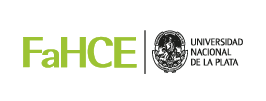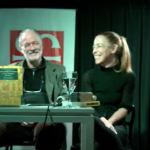Director/a: Manzo, Silvia Alejandra
Integrantes:
Calvente, Sofía Beatríz
-
Lerussi, Natalia Andrea
-
Strok, Natalia
Becarios/Tesistas: García, Jonatan Gastón - Urtubey, Pedro Ignacio
Colaboradores/as: Baggiarini, Estéfano Efren - Benz, Sofia Helena - Falcao Pricladnitzky, Pedro - González Ríos, Héctor José - Guerrero, Leandro - Moreno, Juan Pablo - Zorrilla, Natalia
Proyecto de Investigación y Desarrollo (PI+D) financiado por: Universidad Nacional de La Plata (UNLP)
Código: H969 - Fecha de inicio: 01/01/2022 - Fecha de finalización: 31/12/2025
Lugar de trabajo: CIeFi
ResumenEl objetivo general de este proyecto es construir nuevas narrativas de la filosofía moderna, visibilizar el pensamiento de las filósofas y renovar el canon. Los objetivos particulares están agrupados en tres ejes convergentes. El eje (A) dedicado a la genderización de los conceptos, revisitará la tesis de Carolyn Merchant con respecto la filosofía natural, a la luz de los conocimientos actuales sobre la Revolución Científica y sobre las filósofas consideradas por ella (en especial Anne Conway, Margaret Cavendish y Émilie Du Châtelet). Lo hará aplicando no sólo las categorías masculino y femenino, sino también, las de hermafrodita y monstruo. Examinará no sólo el concepto de naturaleza sino también el de materia. Además, para hacer foco en las representaciones y concepciones del género femenino continuará las actuales relecturas de la querelle de femmes, ocupándose especialmente de las intersecciones entre la filosofía y la demonología. El eje (B), dedicado específicamente a la obra de las filósofas modernas, se abocará a investigar un grupo de autoras (Anne Conway, Damaris Masham, Juana Inés de la Cruz, Margaret Cavendish, Émilie du Châtelet y Catherine Trotter Cockburn) y realizará un estudio comparativo de sus posiciones metafísicas y antropológicas, y de la vinculación entre metafísica y antropología en sus filosofías. Por un lado, reconstruirá sus concepciones generales sobre la estructura general de la realidad, el mundo natural y el mundo humano, y la relación de Dios con el mundo; por otro lado, estudiará sus concepciones sobre el ser humano -y sobre las mujeres en cuanto tales-, lo cual incluye sus ideas sobre la mente y el cuerpo, la humanidad y la animalidad. El eje (C), que se de la historiografía, evaluará en especial la pertinencia de la idea de la historia feminista de la filosofía como un proyecto de “reconocimiento”, sugerida muy recientemente por Charlotte Witt. La comparará con el uso del concepto de reconocimiento en otros proyectos de narrativas inclusivas, como los promovidos por los estudios postcoloniales. Además, investigará narrativas históricas hispanoamericanas (obras de Marcelino Menéndez Pelayo, José Ingenieros, Alejandro Korn, Coriolano Alberini y Francisco Romero) con el fin de evaluar en qué medida y de qué manera las filósofas han sido excluidas de ellas.
Palabras clave: Filosofía Moderna - Early Modern Philosophy - Early Modern Women Philosophers - Philosophical Canon - Filósofas modernas - Canon Filosófico
AbstractThe general aim of this project is to build new narratives of early modern philosophy, make visible the thought of women philosophers and renew the canon. The particular aims are grouped into three converging axes. The axis (A), devoted to the genderization of concepts, will revisit the thesis of Carolyn Merchant regarding natural philosophy, in the light of current knowledge about the Scientific Revolution and about the women philosophers considered by her (especially Margaret Cavendish, Anne Conway and Émilie Du Châtelet). It will do so by applying not only the male and female categories, but also the categories hermaphrodite and monster. It will examine not only the concept of nature but also the concept of matter. In addition, it will focus on the representations and conceptions of the female gender in the wake of the current re-readings of the querelle de femmes, dealing especially with the intersections between philosophy and demonology. Axis (B), concerned with the work of modern philosophers, will investigate a group of authors (Anne Conway, Damaris Masham, Jeanne Inés de la Cruz, Margaret Cavendish, Émilie du Châtelet and Catherine Trotter Cockburn) and make a comparative study of their metaphysical and anthropological positions, and of the link between metaphysics and anthropology in their philosophies. On the one hand, it will reconstruct their general conceptions about the general structure of reality, the natural world and the human world, and God's relationship with the world; on the other hand, it will study their conceptions of the human being -and of women as such-, which includes their ideas about mind and body, humanity and animality. Axis (C), devoted to historiographical issues, will evaluate in particular the relevance of the idea of feminist history of philosophy as a project of "recognition", suggested very recently by Charlotte Witt. It will compare this idea with the use of the concept of recognition in other projects of inclusive narratives, such as those promoted by post-colonial studies. In addition, the project will investigate Hispanic-American historical narratives (works by Marcelino Menéndez Pelayo, José Ingenieros, Alejandro Korn, Coriolano Alberini and Francisco Romero) in order to evaluate the extent to which and in what way women philosophers have been excluded from them.
Keywords: Filosofía Moderna - Filósofas modernas - Canon Filosófico - Early Modern Philosophy - Early Modern Women Philosophers - Philosophical Canon
Disciplinas
FILOSOFÍA
FILOSOFÍA MODERNA
Campos de aplicación
Promoción General del Conocimiento - Cs. Humanas
-
Promoción General del Conocimiento - Cs. Sociales
Especialidad: Historia de las ideas en la Modernidad, filosofía, demonología y ciencias











